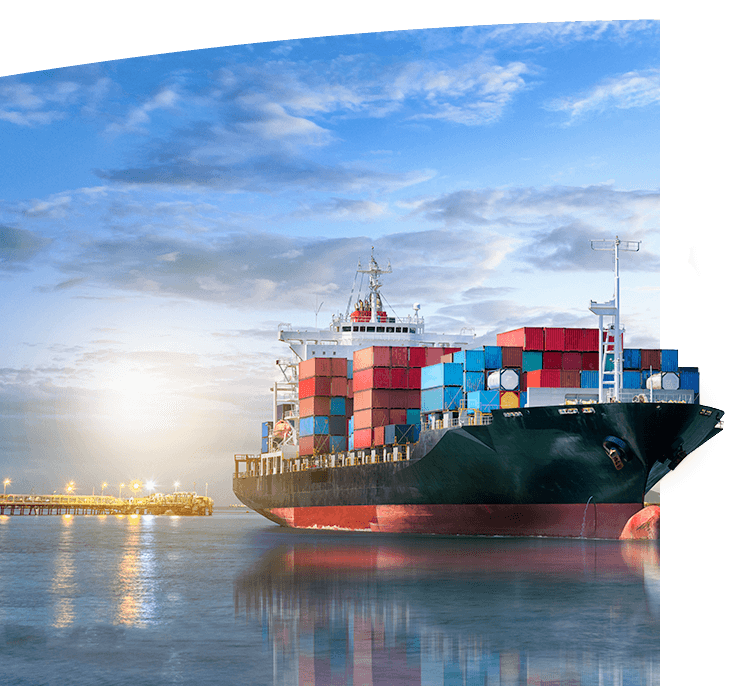Export of goods
In linguistic terms, ‘export of goods’ refers to the transfer or sending of goods from one place to another. However, in the process of commercial and trade activities, the export of goods specifically refers to the departure of goods from the customs territory of a country for sending to other countries. Temporary export of goods” and “permanent export of goods” are two other types of sending goods.
The Nilgon Group of International Transportation Companies. With the necessary licenses from relevant ministries and authorities and utilizing a fleet of appropriate transportation vehicles including curtain-sided trailers, flatbeds, refrigerated trucks, various tanker trucks for gas and petroleum products, car carrier trailers (specifically designed for transporting vehicle bodies and passenger vehicles), and maintaining close communication with the national railway network, airports, and shipping lines, the Nilgon Group is ready to provide its customers’ products in both groupage (LTL) and full truckload (FTL) formats for long-term projects and specific shipments in the fastest possible time while ensuring security and suitable packaging (lashings) on a full-time basis. We are available around the clock to answer inquiries and track shipments sent by cargo owners online. It is worth mentioning that the transportation of export goods to all corners of the world is included within the framework of the international transportation activities of this company.


Who is the exporter?
The exporter is attributed to a natural or legal person who holds a license. Export of goods It is attributed to competent organizations such as chambers of commerce (holders of active commercial cards) and, depending on the commodity they possess (whether they are producers or exporters of goods), they take action. Export of goods It is said to be demonstrated.
What is definitive export of goods?
The term “final export” refers to sending goods outside the customs territory of a country for the purpose of sale or consumption in foreign countries. In final exports, individuals or legal entities are exempt from paying customs duties, commercial profits, fees, and taxes.
The types of prohibitions in the definitive export of goods are as follows:
Prohibited export goods based on Islamic holy law and laws
Antiques related to cultural heritage.
Livestock, plants, and animal species for the preservation of genetic resources and environmental conservation
Goods subject to the process of final exportation require obtaining health certificates, quarantine certificates, and environmental certificates. Without obtaining certification from the relevant organization, they are not permitted for export and clearance.
What is the temporary export of goods?
Temporary exports refer to sending goods abroad for participation in international exhibitions. If the goods are not sold and the trader is compelled to return them to the customs house of origin, they can easily proceed with the return of the goods without the need for customs procedures for importing the goods.
In temporary exports of goods, the exporter commits to depositing a certain amount as a guarantee with the customs of origin. After the goods enter the customs of origin, the necessary steps are taken to refund the deposit.
Export goods are divided into three groups according to the export license:
• Authorized goods
• Conditional goods
• Prohibited goods for export
Authorized exports
The goods that do not require a license for exportation, provided that the customs regulations for exporting goods are followed. The term “customs regulations” refers to the set of arrangements that are legally necessary to be observed for the exportation of certain goods, such as standard requirements, human health certificates, livestock, plant certificates, and so on.
Conditional exports of goods
Goods for which their exportation is possible by obtaining customs permits. After receiving favorable opinions from relevant ministries and notifying the customs by the Ministry of Commerce, necessary measures for authorized goods exportation are announced. There will be no need for the applicant to refer to the relevant ministry or organization and obtain a specific permit.
Export of prohibited goods
Goods that are declared prohibited for exportation due to specific conditions of each country (such as purchasing or selling goods) or for legal reasons established by law. In other words, governments can, based on specific requirements and conditions, prohibit the export of certain goods while adhering to relevant laws.
Exports and Free Trade Zones
According to many economists, the establishment of free trade zones is a tool that developing countries can utilize by employing cheap labor and utilizing raw materials and intermediary goods. By promoting free trade within these zones, they can benefit from the principles of comparative advantage and accelerate their economic development.
Since one of the ways to develop foreign trade is the use of free zone instruments, many economists consider the utilization of this tool beneficial. Especially, the utilization of this tool can act as a factor in preventing shocks resulting from transitional stages of the economy and can significantly align domestic policies with global economic developments, thereby increasing economic efficiency.

Necessary documents to export goods
To export goods from a country, obtaining necessary documents and licenses is essential above all else. The exporter of goods must, with these documents and certificates in hand, go to the customs office at the location of the goods’ issuance. The necessary documents for the export of goods that must be submitted to the customs are as follows
Business card of the issuer
Health certificate (as requested by buyers)
Goods export license (as applicable)
Letter of introduction or power of attorney for the goods declarant to customs
Animal and plant quarantine certificate (according to buyers’ request)
Form of baling goods
Standard certificate (as applicable)


